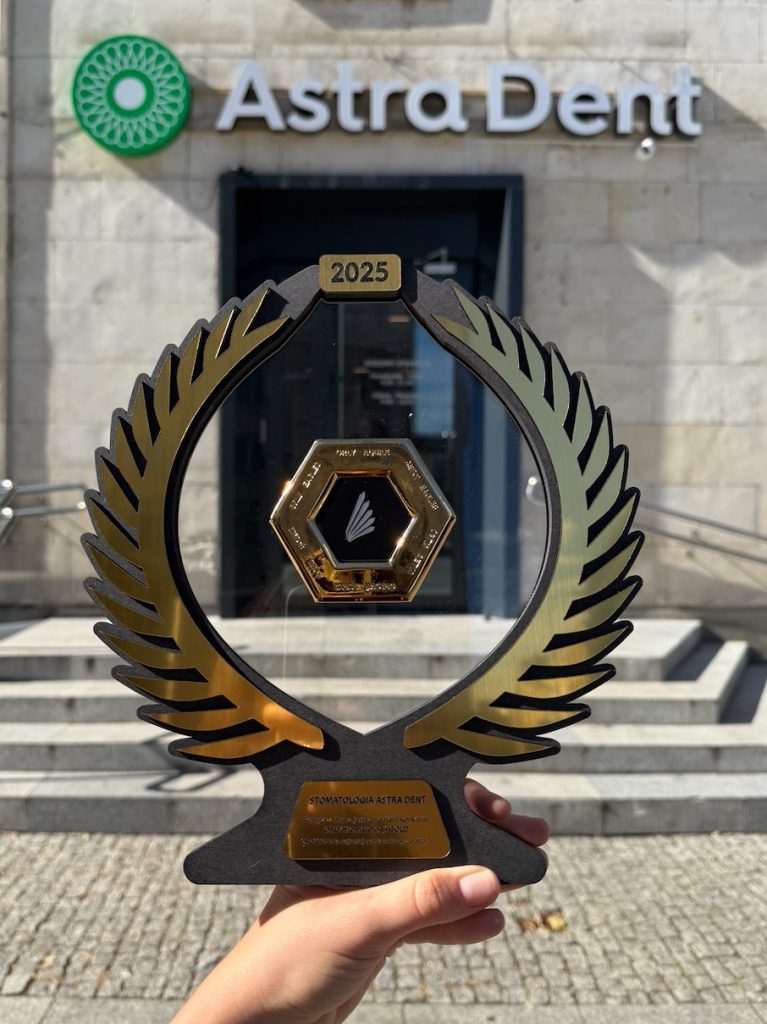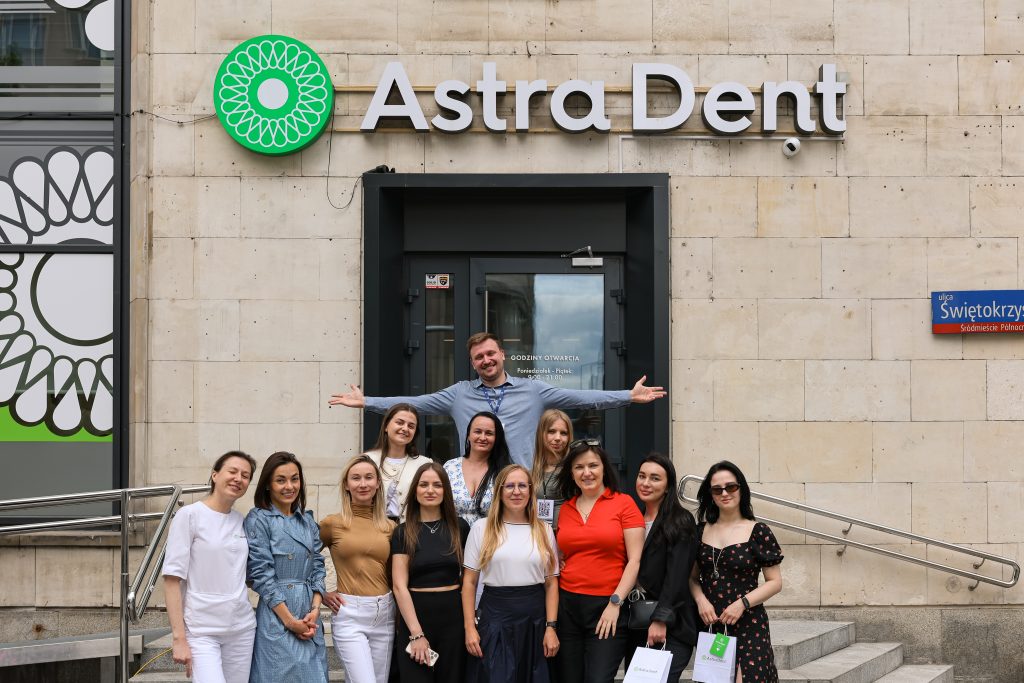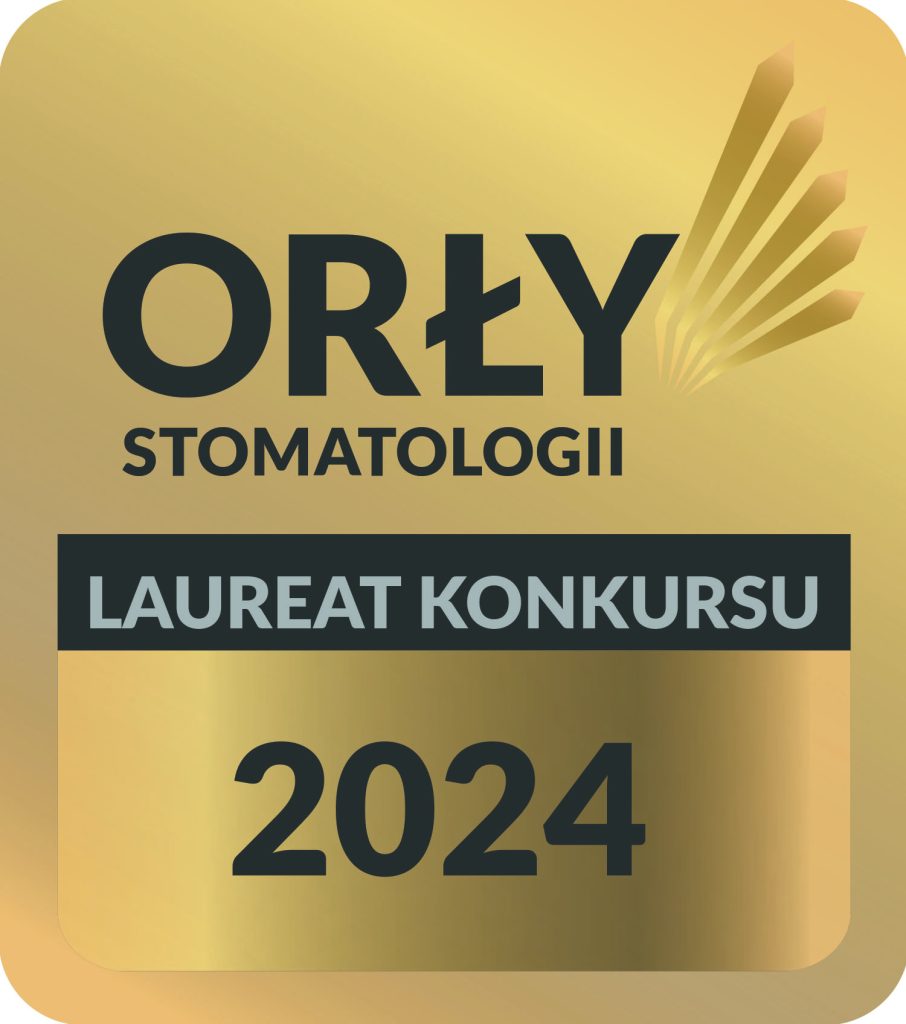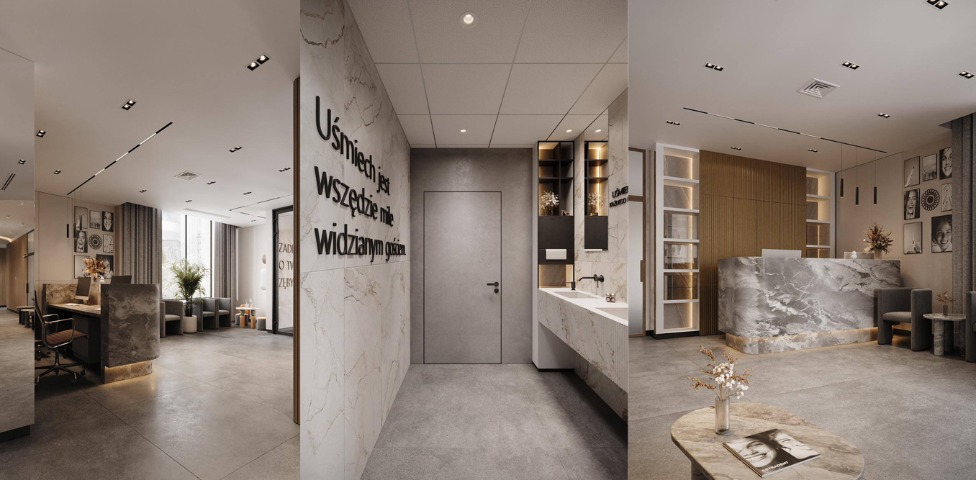satisfied patients
Mini implants
Book a visit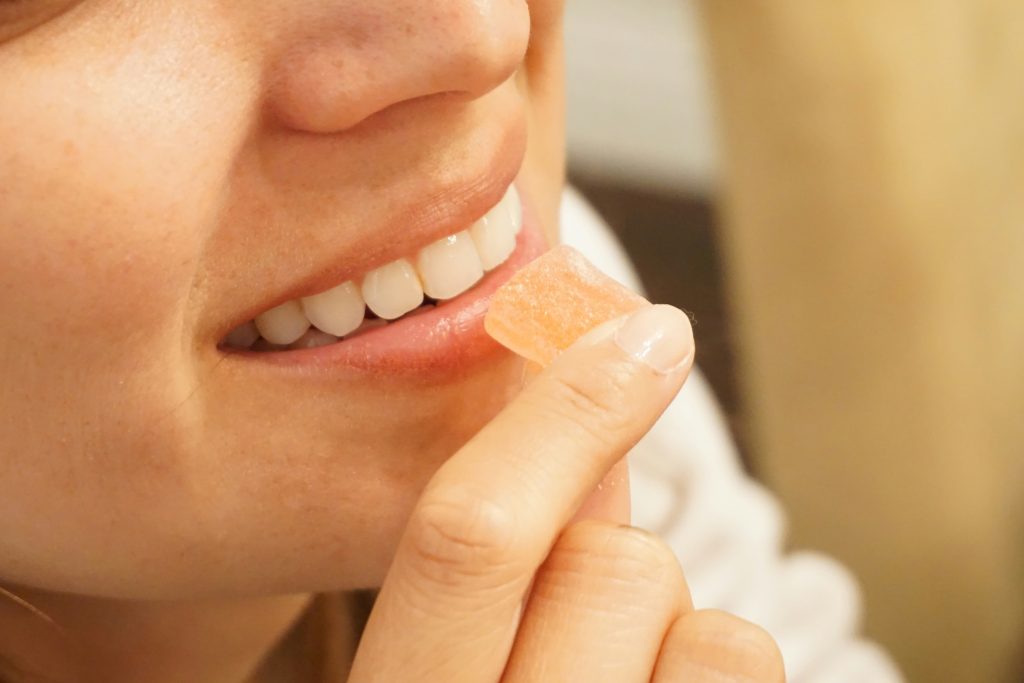
Dental treatment in Warsaw
More on procedure
Mini-implants at Astra Dent Warsaw in Poland
Mini-implants are titanium rods with a diameter of up to 3 mm, which are used to stabilize dentures. They provide reliable fixation without bone augmentation and complex surgical procedures. Installation of mini-implants is a gentle prosthetics: suitable for the elderly and patients who have contraindications to classical implantation. The procedure takes about 30 minutes, and healing occurs within 2-3 days.
Astra Dent in Warsaw specializes in mini-implant installation procedures. The facility employs doctors with over 15 years of experience who use titanium rods. They ensure structural strength and do not interfere with medical examinations – CT and MRI of the head. They create a reliable basis for fixing orthopedic restorations – from bridges to removable dentures.
What are mini dental implants?
Compact titanium structures with a diameter of 1.8-3 mm are used to restore individual teeth and stabilize dentures in cases where classic implantation is impractical or impossible. The main feature is a minimally invasive intervention with the installation of rods through a puncture in the gums. This reduces tissue trauma and accelerates healing.
The structure of a mini implant (Mini Dental Implant, MDI) differs from the standard one. It consists of two parts – a titanium base that is fixed in the bone tissue, and a ball head or thread for attaching orthopedic structures. Due to its smaller diameter, it is suitable for patients with thin or atrophied bone.
A classic dental implant has a diameter of 3.5-6 mm. Its installation requires sufficient thickness of bone tissue, and if there is a lack of it, plastic surgery. Additional procedures delay the treatment and recovery process, and in some cases increase the risk of complications.
The main differences of mini-implants:
- Smaller size. Do not require a significant amount of bone.
- Easy installation. They are inserted through a puncture, while traditional implants are implanted in a drilled hole.
- Fast healing. MDIs fuse with the bone in 2-3 months, while standard implants require 4-6 months.
- Fixation of the prosthesis. In the case of gentle prosthetics, loading is possible immediately after the prosthesis is installed, while classic ones require long-term rehabilitation.
Traditional implants provide higher chewing load and durability. However, in cases where their installation is contraindicated, patients can solve the problem with the help of thin-profile rods.
Advantages of mini-implants
Design features and minimal intervention during installation are some of the most important advantages of compact implants. They allow us to quickly restore your dentition without complex preparatory procedures. Among other advantages of low-traumatic prosthetics, it is worth highlighting:
- Gentle installation. Mini-implants are fixed without incisions and sutures, which significantly reduces gum trauma and accelerates healing.
- Fixation of the prosthesis on the day of implantation. In most cases, an orthopedic structure (crown, bridge or removable prosthesis) is installed immediately after implant placement.
- Rapid rehabilitation. Recovery takes 2-3 days, which reduces the period of discomfort after the procedure.
- Low risk of rejection. The smaller diameter of the titanium rod means less stress on the bone tissue. This reduces the likelihood of complications and inflammatory processes.
According to a systematic review that included 1,715 mini-implants in 475 patients with a follow-up period of 6 to 84 months, the overall survival rate was 95.63%. Statistics emphasize the reliability of MDI as an effective solution for dental prosthetics.
Who are mini dental implants for?
Mini-implants are suitable for patients who have medical or anatomical limitations for classic implantation. They are recommended in the following cases:
- Insufficient bone volume. Bone atrophy makes it impossible to install classic implants without prior osteoplasty (increasing bone volume).
- Elderly people. With age, bone tissue thins, which complicates implantation. Small implants can be installed even in cases of significant bone resorption.
- Patients with chronic diseases. Diabetes, osteoporosis, hypertension and some other diseases may be contraindications to classic implantation. Mini implants put a low load on the body and are better tolerated by concomitant pathologies.
- People who wear removable dentures. Fixing orthopedic restorations on mini-implants improves the stability of the structure, reduces discomfort and eliminates the risk of falling out.
- Patients with allergies to metal. Titanium rods are biocompatible, which minimizes the risk of allergic reactions.
- Those looking for a quick solution. Installation of mini-implants takes 30-60 minutes, and the prosthesis can be fixed immediately after the procedure.
- People who want to save money. MDI requires less materials, time and additional procedures, so they are more affordable compared to classic implantation.
Compact implants eliminate functional, aesthetic and medical problems. This is the best option for those who care about:
- Durability. According to research, the integration rate of mini-implants is 95-98%, and the service life exceeds 10-15 years.
- Aesthetics. The absence of teeth leads to deformation of the facial skeleton and sagging cheeks. Mini-implants prevent pathological processes, restoring the natural contour of the face.
- Functionality. MDIs allow you to chew solid food without restricting the patient’s diet. This is important for people who previously used removable dentures.
- Protection of neighboring teeth. Unlike bridges, implantation does not require grinding healthy teeth.
- No discomfort. A fixed prosthesis does not move or rub the gums like traditional removable structures.
If you are looking for a quick, painless and safe way to restore your dentition, contact the specialists of Astra Dent in Warsaw. The facility with 18 years of experience in the dental market offers more than 1,000 services – from dental CT to the installation of nylon implants.
How do mini dental implants work?
The process of installing mini implants consists of several stages. Each has its own characteristics and requires a careful approach.
Initial consultation and assessment
At the initial consultation, the doctor conducts a detailed examination of the oral cavity, assessing:
- the condition of the gums;
- the presence of caries;
- the quality of the bite;
- the general condition of the teeth.
If necessary, additional examinations are prescribed, for example, blood tests to exclude contraindications to the procedure.
Preparation for the procedure
After the initial examination, the specialist plans the procedure for installing mini-implants, which includes:
- X-ray examination. A panoramic image or computed tomography (CT) is performed to determine the volume and density of bone tissue, and to accurately plan the location of the implants.
- Sanitation of the oral cavity. Before the procedure, it is necessary to cure all existing diseases of the teeth and gums, perform professional oral hygiene, and remove tartar and plaque.
Based on the collected data, the doctor draws up a detailed treatment plan, determines the number and location of implants, and selects the appropriate type of prosthesis.
Installation of mini-implants
The procedure is usually performed under local anesthesia and includes the following steps:
- Preparation. After administering anesthesia, the doctor treats the surgical field with an antiseptic.
- Installation of implants. Using a special tool, a small puncture is made in the gums without an incision. A titanium rod is screwed into the prepared hole.
- Fixation of the prosthesis. In many cases, a temporary or permanent prosthesis is immediately fixed to the installed implants, which allows the patient to immediately use new teeth.
Modern prosthetics techniques significantly reduce the procedure time, minimize discomfort, and accelerate recovery. The patient can return to their usual rhythm of life in just a few days.
Post-procedural care and monitoring at Astra Dent Warsaw
After installing the MDI, it is necessary to follow the doctor’s recommendations for successful engraftment and durability of the structure:
- Hygiene. Brush your teeth thoroughly twice a day with a soft toothbrush and non-abrasive toothpaste. Use dental floss and interdental brushes to clean hard-to-reach areas.
- Nutrition. Avoid hard and sticky foods in the first days after the procedure. Prefer soft and warm foods.
- Visiting the facility. Regularly come for check-ups and professional teeth cleaning every 6 months.
- Habits. Avoid smoking and excessive alcohol consumption, as this can negatively affect healing.
Following the recommendations promotes rapid recovery and ensures long-term results after the installation of mini dental implants.
Why choose Astra Dent Warsaw for mini-implants?
Implantation is a responsible step that requires a professional approach. It is important to choose high-quality materials and entrust the procedure to doctors who use modern technologies. Astra Dent in Warsaw meets all the criteria and guarantees a high level of medical services:
- Experienced implantologists with many years of practice. Installing mini-implants requires precision, anatomical knowledge and microsurgical skills. Astra Dent employs certified implantologists with over 15 years of experience, who annually undergo advanced training courses in Europe and the USA. They have all modern implantation techniques – from seamless techniques to digital planning of operations.
- Accurate calculation thanks to modern technologies. Implantation is performed using 3D diagnostics and digital modeling. This ensures maximum accuracy of prosthesis installation, reduced trauma and a predictable result.
- Personalized service and multilingual support. Astra Dent is focused on patients from different countries, so the staff speak several languages. This simplifies communication for foreigners who come to Poland for treatment.
- Individual approach. A personal treatment plan is developed for each patient, taking into account anatomical features. Doctors explain all stages of the procedure in detail, and after the operation, step-by-step care recommendations are provided.
- Transparent and favorable pricing policy. Astra Dent uses high-quality titanium implants, but thanks to optimized technologies, the cost remains affordable. The dental center has fixed prices without hidden fees. A detailed estimate is provided before the procedure begins.
- Comfort and a convenient location. Astra Dent is located in the center of Warsaw, near the Świętokrzyska metro station. The facility is easy to get to by public transport or by car.
Patients receive comprehensive treatment in one place, which eliminates the need to visit other medical institutions. This saves time and allows you to undergo implantation as quickly and comfortably as possible.
How to make an appointment?
Take care of your dental health today. Astra Dent employs experienced doctors who use modern implantation methods to quickly restore the dentition. You can make an appointment in several ways. You can contact the coordinators by phone + 48 533 599 552. Leave a request on the website using the “Make an appointment” option, or by sending an email to info@astradent.pl.
Appointments are held at a time convenient for patients: from 9:00 to 20:00 on weekdays, and 9:00 to 18:00 on weekends. Appointments are quick, without queues or waiting. Choose a convenient time and take the first step towards a healthy smile!
Why do patients trust Astra Dent doctors?
years of successful experience in dentistry
newest equipment for treatment and diagnostics
minute walk from Świętokrzyska metro station
FAQ
| Can mini-implants be installed in case of complete edentia? | |
|
Yes, mini-implants are used to fix removable dentures. They provide structural stability and eliminate the problem of slipping during conversation or eating. |
|
| Can mini-implants be installed in people with diabetes? | |
|
Yes, but provided that blood sugar levels are controlled. Patients with diabetes are at increased risk of slow tissue healing, so it is necessary to consult an endocrinologist before the procedure. |
|
| Can mini-implants be installed in smokers? | |
|
Smoking negatively affects healing after implantation. Smokers have an increased risk of prosthesis rejection. However, if the patient follows the doctor’s recommendations and reduces the number of cigarettes smoked at least in the first weeks after the procedure, the success rate of implantation remains high. |
|
| Do I need to take antibiotics after installing mini-implants? | |
|
In most cases, the doctor prescribes antibacterial therapy to prevent infections and reduce the risk of inflammation after the procedure. The duration of taking the drugs is determined individually. |
|
| How do mini-implants differ from basal implants? | |
|
Mini-implants are fixed in the cancellous layer of bone, and basal ones are fixed in the deeper layers of bone tissue. The latter require a more complex surgical technique and are suitable for patients with severe jaw atrophy. |
|
| How long do mini-implants last? | |
|
Depending on the care and individual characteristics of the patient, mini-implants can last from 10 to 20 years or more. Regular check-ups with a dentist and proper oral hygiene will extend the life of the prosthesis. |
|
| Is it necessary to do a computed tomography scan before installing mini-implants? | |
|
Yes, 3D diagnostics (CT) allows us to assess the condition of your bone tissue, determine the optimal points for installing implants and reduce the risk of complications. |
|
| Is it possible to replace mini-implants with classic ones in the future? | |
|
Yes, if the patient decides to switch to classic implantation in the future, a replacement is possible. This will require additional procedures, such as bone grafting, if the tissue volume decreases. |
|
| What materials are used to make mini-implants? | |
|
Most implants are made of medical titanium or titanium alloys. The biocompatible material does not cause allergic reactions and adheres well to bone tissue. |
|
Hot deals

Specialist Consultation + CT Scan for 349 zł
Time to take care of your smile
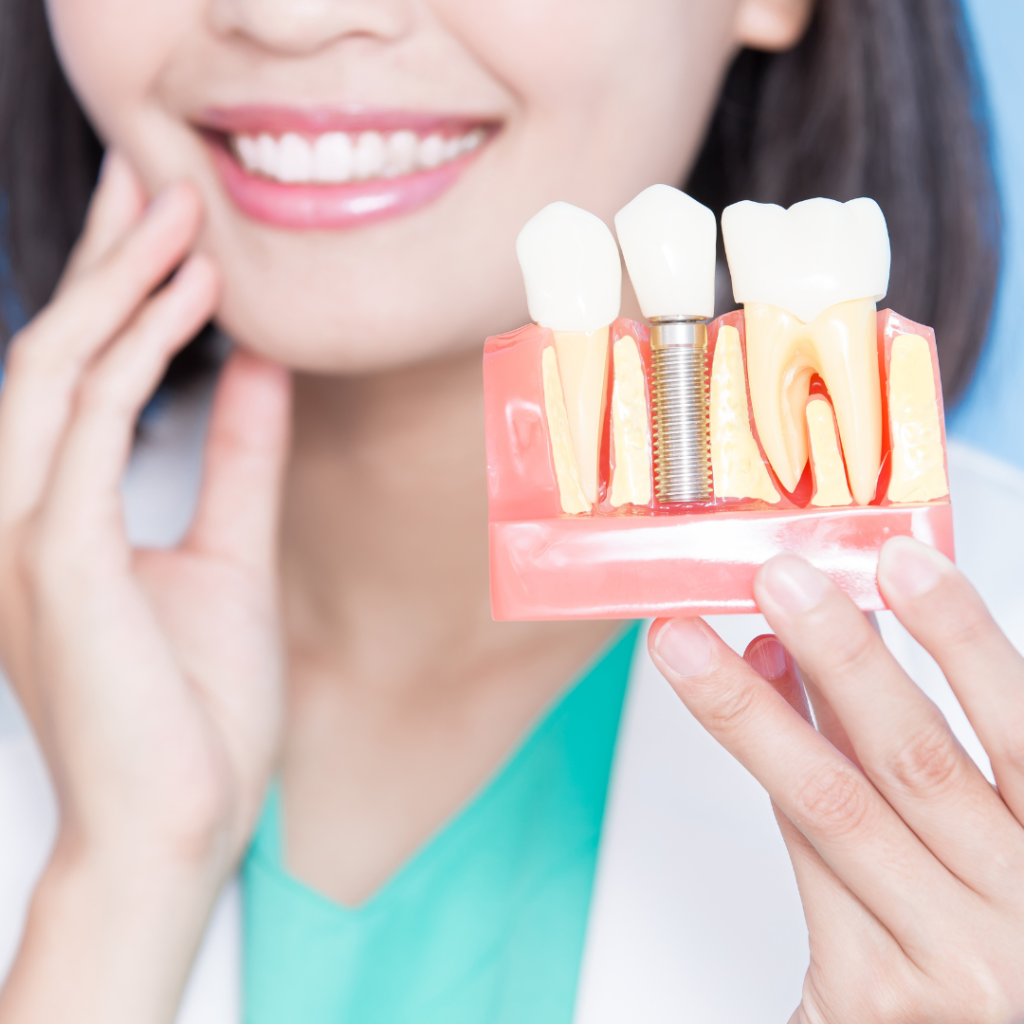
Implant Megagen for 2500 zł only
This solution provides durability, comfort, and a natural look, allowing you to enjoy everyday comfort.

Professional Dental Cleaning 4in1 + Check-up for 350 zł
The beginning of a new year is the perfect time to focus on your health and build good habits.

Surgical and implantology consultation with CT for PLN 350!
The special offer for PLN 350 is valid until July 31, 2025.
